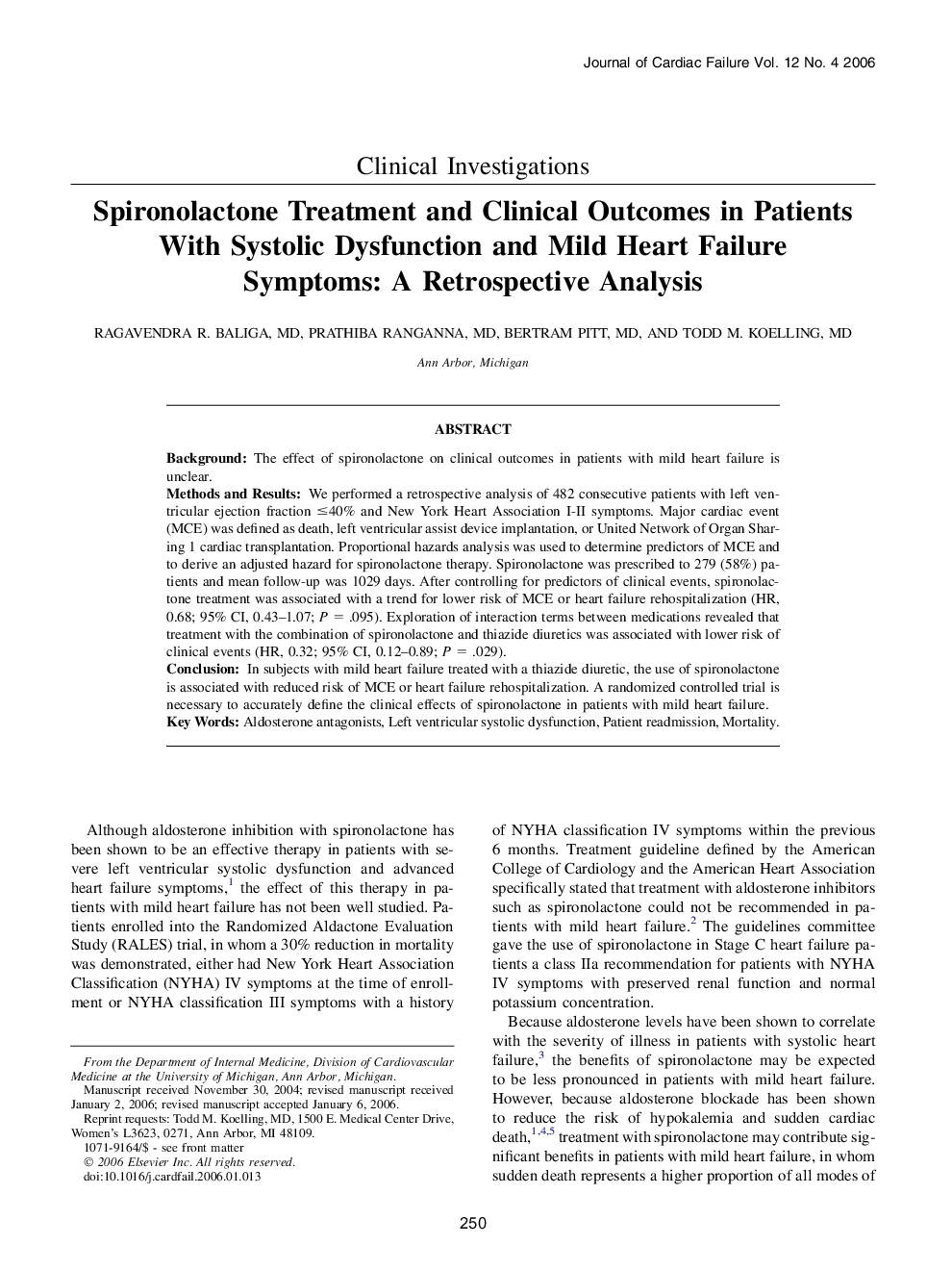| Article ID | Journal | Published Year | Pages | File Type |
|---|---|---|---|---|
| 2961964 | Journal of Cardiac Failure | 2006 | 7 Pages |
BackgroundThe effect of spironolactone on clinical outcomes in patients with mild heart failure is unclear.Methods and ResultsWe performed a retrospective analysis of 482 consecutive patients with left ventricular ejection fraction ≤40% and New York Heart Association I-II symptoms. Major cardiac event (MCE) was defined as death, left ventricular assist device implantation, or United Network of Organ Sharing 1 cardiac transplantation. Proportional hazards analysis was used to determine predictors of MCE and to derive an adjusted hazard for spironolactone therapy. Spironolactone was prescribed to 279 (58%) patients and mean follow-up was 1029 days. After controlling for predictors of clinical events, spironolactone treatment was associated with a trend for lower risk of MCE or heart failure rehospitalization (HR, 0.68; 95% CI, 0.43–1.07; P = .095). Exploration of interaction terms between medications revealed that treatment with the combination of spironolactone and thiazide diuretics was associated with lower risk of clinical events (HR, 0.32; 95% CI, 0.12–0.89; P = .029).ConclusionIn subjects with mild heart failure treated with a thiazide diuretic, the use of spironolactone is associated with reduced risk of MCE or heart failure rehospitalization. A randomized controlled trial is necessary to accurately define the clinical effects of spironolactone in patients with mild heart failure.
